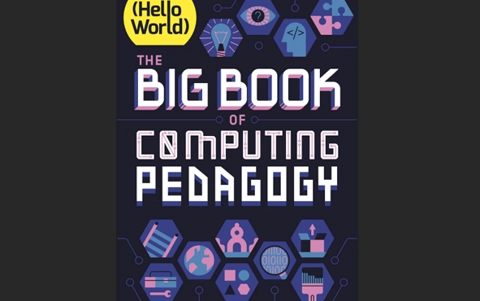The Big Book of Computing Pedagogy
This guide focuses on approaches to teaching computing in the classroom, and includes pedagogically themed articles. It is structured around twelve pedagogical principles, originally developed by the Raspberry Pi Foundation for the National Centre for Computing Education in England.
Additional details
| Year band(s) | 3-4, 5-6, 7-8, 9-10 |
|---|---|
| Content type | Article or research |
| Format | Downloadable resources |
| Core and overarching concepts | Implementation (programming) |
| Australian Curriculum Digital Technologies code(s) |
AC9TDI10P09
Implement, modify and debug modular programs, applying selected algorithms and data structures, including in an object-oriented programming language
AC9TDI8P09
Implement, modify and debug programs involving control structures and functions in a general-purpose programming language
AC9TDI6P05
Implement algorithms as visual programs involving control structures, variables and input
AC9TDI4P04
Implement simple algorithms as visual programs involving control structures and input |
| Keywords | teach computing, pedagogy |
| Integrated, cross-curriculum, special needs | Digital Literacy |
| Organisation | Raspberry Pi Foundation |
| Copyright | © Raspberry Pi Foundation. Creative Commons BY-NC-SA 3.0. |
Related resources
-
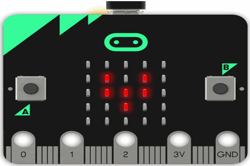
The Micro:bit Matters
In this article, Gary Stager introduces and explains the BBC micro:bit. He discusses pros and cons of the device, prices, compatible programs to use with it, resources to help understand the Micro:bit and other technological devices on the market.
-
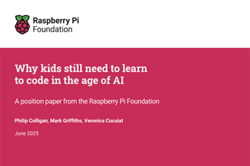
Why kids still need to learn to code in the age of AI
This report put forward evidence that even in a world where AI can generate code, we will need skilled human programmers who can think critically, solve problems, and make ethical decisions. It puts the case forward that young people need to learn to code because it is the most effective way for them to develop the mental models and fluency to become skilled human programmers.
-
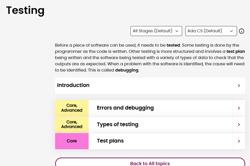
Testing
This comprehensive online guide, provides a background to testing code. This topic has information on debugging and writing a test plan.
-
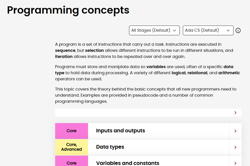
Programming concepts
This comprehensive online guide, provides a background to programming. This topic has information about sequence, selection and variables.
-
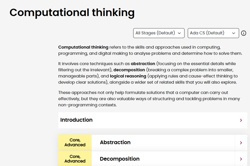
Computational thinking
This comprehensive online guide, provides a background to computational thinking which refers to the skills and approaches used in computing, programming, and digital solutions to analyse problems and determine how to solve them.
-
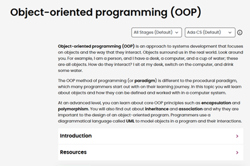
Object-oriented programming (OOP)
This comprehensive online guide, explores ways the OOP method of programming (or paradigm) is different to the procedural paradigm, which many programmers start out with on their learning journey. This topic introduces objects and how they can be defined and worked with in a computer system.
-
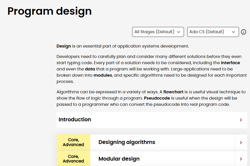
Program design
This comprehensive online guide, explores ways specific algorithms are designed for large applications, considering data and user interface. Learn how algorithms can be expressed as a flowchart and pseudocode, and validated and verified.
